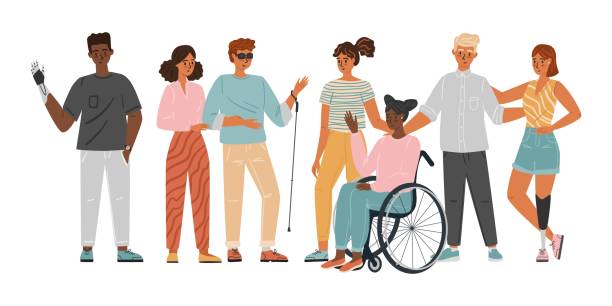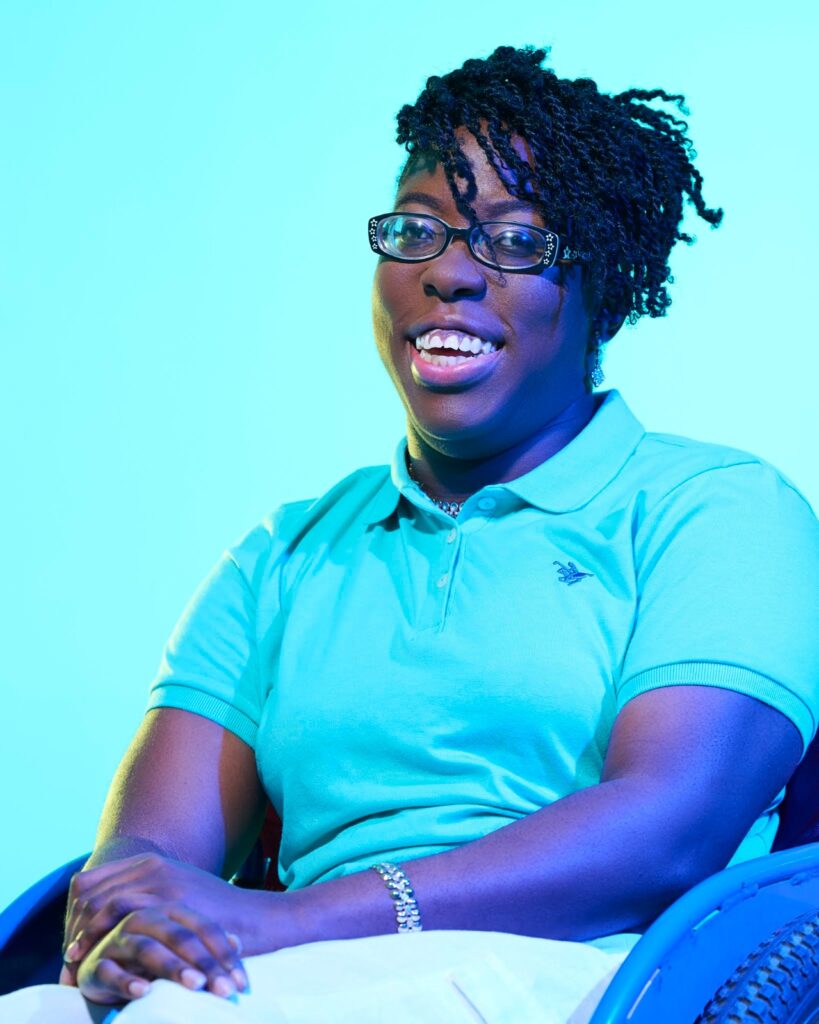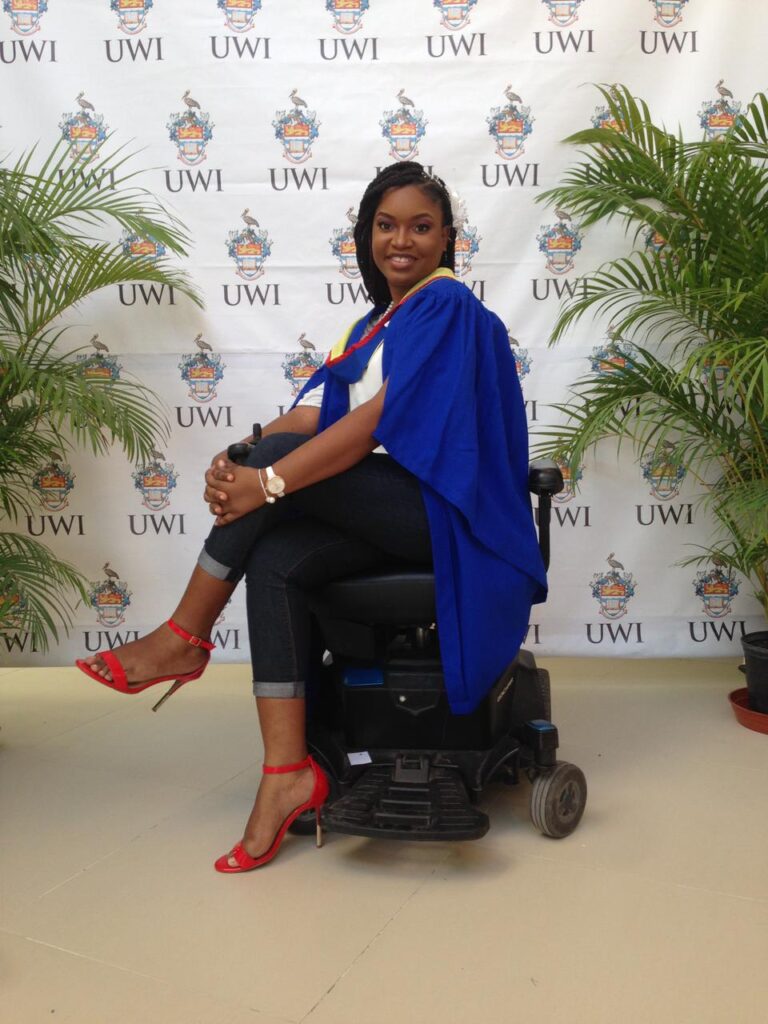Climate resilience is about being able to efficiently cope with and manage the impacts of climate change while actively working to minimise their escalation. A climate resilient society would have low carbon emissions and be equipped to deal with realities where conditions are hotter. We live in a world where it is almost trendy to throw around the phrase ‘climate resilience’. In some cases, it may even be unclear if those using the phrase genuinely understand its meaning, its impact, and how to use it to empower people. This is especially true for vulnerable and disabled communities. Climate change-related events such as consistently increasing temperatures, longer droughts, infrequent but more devastating storms, and floods are among the many that negatively impact.

These situations are currently inevitable, given the current state of affairs negatively affecting all countries, with small island developing states experiencing the brunt of it. In the case of Jamaica and the Atlantic Hurricane Season, the country continues to face drought in many areas while it prepares for the occurrence of a storm. This is inclusive of arranging the national emergency shelter list, identifying the shelter management teams, and being ready for activation. The 2023–2024 National Shelter List, as found on the Office of Disaster Preparedness and Emergency Management (ODPEM) website, has been made ready with indications that relevant teams are in place and prepared to jump into action if or when the need arises.

The list of a total of 892 shelters covers all regions of Jamaica and comprises community centres, churches, and government schools. The Ministry of Local Government and Rural Development, which ultimately holds responsibility for emergency preparedness, has reported on a number of occasions on the readiness of shelters should an activation occur. However, with continued incidents where disabled people are denied access because of their disability, the question must be asked if the schools and other buildings on the current National Shelter List are equipped to house members of the disabled community in an emergency. This has been evidenced through recent events at a high school in St. Andrew Parish. Although this school is not on the list, well over 100 government schools are, and considering the general lack of disability inclusion in Jamaica, how many of these buildings are really fit for members of the disabled community?
Efforts were made to speak with the local regional disaster coordinators to share, but that was unsuccessful. One can only imagine how many designated shelter locations are not as accessible as they ought to be.

In a recent interview, members of the disabled community, Richelle Henry, a disability advocate, and Ginnel Peart, a disability and climate change activist, stressed the importance of granting accessibility to all people with disabilities and empowering them to become climate resilient. With a focus on the hurricane season, they raised questions and calls for concern about accessibility and empowerment in coping with climate change events and the possibility of being housed in emergency shelters. “Empowerment is independence. Give people [with disabilities] their own independence. Tell them and show them that they have your support,” said Peart, who added that ‘things should be put in place that can make life for us and for you”.
Peart, who has muscular dystrophy and scoliosis, said that her journey as a disabled person began at about the age of five. She recalled that aspects of her childhood school life were challenging as far as there being little facilitation for her to become independent and execute the perceived normal tasks as her able-bodied counterparts. Henry, on the other hand, who has cerebral palsy (CP), has had it all her life. With a different experience when compared to Peart, she shared that she attended the McCam Child Development and Resource Centre as well as the Hope Valley Experimental School, where, along with her parents, she facilitated and encouraged independence from an early stage of life. “Unfortunately, when issues such as climate change-related events occur, it poses a challenge for PWD. So, entities need to be more proactive and not just wait until something happens before addressing concerns for members of the community leading up to or within a disaster. Think about this by being a few steps ahead and operate as if the affected people are your relatives; think about it as if you were being impacted. You are going to want to feel accepted. You are going to want to know that you can move without having people constantly assisting you,” she said.

Peart, a former student of animal biology, was a youth environment ambassador for Jamaica Climate Change Youth Council (JCCY) and is currently one of the regional coordinators for the coalition section for Youth in Climate Change. She emphasised the importance of leaving space for community members to be involved. ”I don’t think enough effort is being exerted for the community. I think various entities can approach the councils and/or organisations dedicated to PWD. Yes, there is the Jamaica Council for Persons with Disabilities, but there are many others out there, such as the Combined Disabilities Association, the Jamaica Society for the Blind, the Jamaica Association for the Deaf, and more,” she highlighted. “Why not collaborate with all these groups for the greater good of building resiliency for PWD? Apart from the advocates, why not have government officials actively participate in these engagements? Why not more private organisations? Let’s have a discussion. Let’s inform the disabled community. We need people in particular positions to join and affect the changes required. Advocates cannot do it by themselves,” she said.
“Start the conversation with the impacted individuals. Find out how their needs can be met and what it means for them to be empowered to cope in climate change-related events,” she stressed, highlighting that despite being under one general umbrella, all disabled people, regardless of condition, have unique needs. ”We need to use the most limiting concerns of people with disabilities as the blueprint to tailor the approach in empowering all,” she stressed, explaining that good can come from using a weakness to someone else’s advantage in that the limitations are strengthened.
On Henry’s part, she indicated that she only feels empowered to cope with climate change-related events based on her affiliation with climate change and climate justice advocates. “People talk about being climate resilient, but not a lot is being done to even educate. There isn’t a lot of public awareness for climate change adaptation or resiliency for PWD,” she said, asking the question, “where are the community-appropriate advertisements or even social media engagement”. ”I believe that, right now, if you don’t have someone who is heavily invested in the area, then you may be left out of the loop,” she added. Peart shared that she feels empowered to properly deal with climate change-related events and that she possesses resilience based on her involvement in the field.

Peart pointed, however, to the importance of properly transporting the disabled, who live in flood-prone areas and are susceptible to being negatively impacted, and providing “the right kinds of alerts” that indicate the status of an area before, during, and after an emergency. Additionally, Peart spoke about infrastructure being outfitted with the appropriate type of ramps to facilitate people in wheelchairs. “It’s not just that there is a ramp. There must be ease for them to [comfortably] get in and out. You’re not going to put a ramp somewhere, and then after you put the ramp, there is a step. That makes no sense,” she said, pointing out that steep or narrow ramps should also be avoided.
Based on their general experiences, both ladies addressed concerns about bathrooms within shelters and the level of accessibility. They stressed that designated bathroom facilities for disabled people should be present and should be spacious enough for manual or motorised wheelchairs to move. “We need barriers, railings, and space. Don’t give us small cubicles expecting us to use it when we can hardly fit,” they said. The two advocates also addressed concerns such as sleeping arrangements, as some people require specialised bedding to ensure sufficient comfort, pointing out that the concern transcends the disabled community and also includes all vulnerable people, such as the elderly and people with particular chronic and non-communicable diseases.
Acknowledging that emergency shelters aren’t luxurious, “It’s just the little things. What are the adjustments being made [for the disabled and other vulnerable groups]?” they asked. At this point, the connection between climate resiliency and climate justice requires acknowledgement of the negative impact climate change has on specific communities. Without sufficient access or provisions for sustained independence, vulnerable groups cannot become empowered and are at a disadvantage. To not address them would be an injustice to them, as they make up part of the wider community as well.
This story was published by News 5 Belize with the support of the Caribbean Climate Justice Journalism Fellowship, which is a joint venture between Climate Tracker and Open Society Foundations.